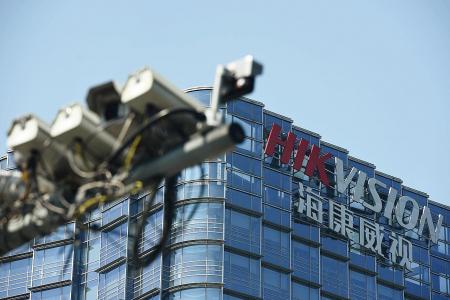Ambassador: China ready to continue trade talks, US changes mind often
Cui Tiankai says Beijing ready to continue trade talks, blames US for breaking away from previous deals
WASHINGTON/BEIJING : China is ready to resume trade talks with the US, China's Ambassador to the US Cui Tiankai said, as a top US business lobby in China said nearly half its members are seeing non-tariff barrier retaliation in China due to the trade war.
No further trade talks between top Chinese and US negotiators have been scheduled since the last round ended in a stalemate on May 10, the day US President Donald Trump raised tariffs on US$200 billion (S$276 billion) worth of Chinese goods and took steps to levy duties on all remaining Chinese imports.
Acrimony has intensified since Washington last week blacklisted Chinese telecom equipment company Huawei Technologies, a potentially devastating blow for the company that has rattled technology supply chains and investors.
Another big Chinese tech company, video surveillance equipment maker Hikvision Digital Technology, could also face limits on its ability to buy US technology, The New York Times reported, citing sources, sending its Shenzhen-listed shares 10 per cent lower at the opening yesterday.
Negotiations between the US and China have soured dramatically since early May, when Chinese officials sought major changes to the text of a proposed deal the Trump administration said had been largely agreed.
But speaking to Fox News Channel, Mr Cui said Beijing was still open for talks.
"China remains ready to continue our talks with our American colleagues to reach a conclusion. Our door is still open," he said on Tuesday.
He blamed the US side for frequently "changing its mind" on tentative deals to end US-China trade disputes. Mr Cui turned the tables and said it was US negotiators that had abruptly backed away from some previous deals that had been tentatively agreed over the past year.
"It's quite clear it is the US side that more than once changed its mind overnight and broke the tentative deal already reached," he said. "So we are still committed to whatever we agree to do, but it is the US side that changed its mind so often."
Last June, US Commerce Secretary Wilbur Ross held negotiations with Chinese Vice-Premier Liu He on an offer by China to increase its purchases of US goods by around US$70 billion, US officials said at the time.
But Mr Trump did not accept the offer, choosing instead to begin imposing tariffs on Chinese goods.
This week, Chinese President Xi Jinping urged people to prepare for "a new Long March", evoking the patriotic spirit of the 1934-36 route march of Communist Party members fleeing a civil war to a rural base, where they re-grouped and eventually took power in 1949.
Financial market analysts interpreted his remarks as a sign that China was girding for a protracted dispute with the US.
US firms are beginning to face retaliation in China.
The American Chamber of Commerce of China and its sister body in Shanghai, citing a recent survey of members on the impact of tariffs, said yesterday that members said they face increased obstacles such as government inspections, slower customs clearance and slower approval for licensing and other applications.
It also said that 40.7 per cent of respondents were considering or had relocated manufacturing facilities outside China.
Of the almost 250 respondents to the survey, which was conducted after China and the US both raised tariffs on each other's imports earlier this month, almost three-quarters said the impact of tariffs was hurting their competitiveness.
To cope, around one-third of companies said they were increasingly focusing China operations on producing for Chinese customers and not for export, while another one-third said they were delaying and cancelling investment decisions.
The US is seeking sweeping changes to China's trade and economic policies, including an end to forced technology transfers and theft of US trade secrets. It also wants curbs on subsidies for Chinese state-owned enterprises and increased access to US markets.
Mr Cui told Fox News Channel that US restrictions on Huawei "are without any foundation and evidence" and could undermine the normal functioning of markets.
"Everybody knows Huawei is a privately owned company. It is just a normal Chinese private company," he said. "So the actions taken against Huawei are politically motivated." - REUTERS
Get The New Paper on your phone with the free TNP app. Download from the Apple App Store or Google Play Store now



